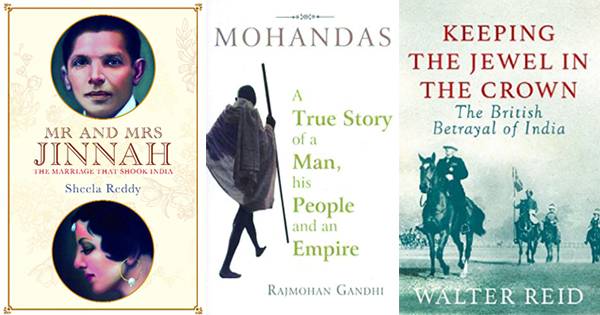
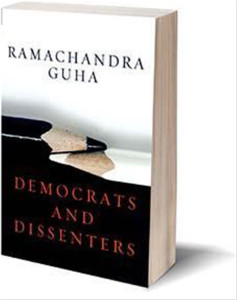
Democrats and Dissenters
Ramachandra Guha
Penguin Random House India (2016)
Rs1,321
A major new collection of essays by Ramachandra Guha, Democrats and Dissenters is a work of rigorous scholarship on topics of compelling contemporary interest, written with elegance and wit.
The book covers a wide range of themes: from the varying national projects of India’s neighbours to political debates within India itself, from the responsibilities of writers to the complex relationship between democracy and violence. It has essays critically assessing the work of Amartya Sen and Eric Hobsbawm, essays on the tragic predicament of tribals in India—who are, as Guha demonstrates, far worse off than Dalits or Muslims, yet get a fraction of the attention—and on the peculiar absence of a tradition of conservative intellectuals in India.
Each essay takes up an important topic or an influential intellectual, as a window to explore major political and cultural debates in India and the world.
Ramachandra Guha’s many books include a pioneering work of environmental history (The Unquiet Woods, 1989), an award-winning social history of sport (A Corner of a Foreign Field, 2002) and a widely acclaimed and bestselling work of contemporary history (India after Gandhi, 2007). The first volume of his landmark biography of Gandhi, Gandhi before India, was published in 2013; the second and concluding volume will be published in early 2018.
Guha’s awards include the R. K. Narayan Prize, the Sahitya Akademi Award, the Ramnath Goenka Prize and the Padma Bhushan. In 2014 he was awarded an honorary doctorate in the humanities by Yale University. In 2015 he won the Fukuoka Prize for contributions to Asian culture and scholarship.
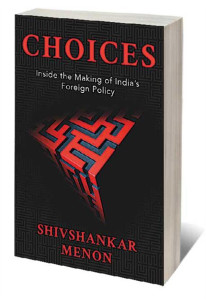
Choices: Inside the Making of Indian Foreign Policy
Shivshankar Menon
Penguin Random House India (2016)
Rs1,132
Shivshankar Menon gives an insider’s account of the negotiations, discussions and assessments that went into the making of five pivotal choices in India’s recent history. These include the decision not to use overt military force against Pakistan after 26/11, the civil nuclear deal with the United States; the border agreement with China; the response to the last months of Sri Lanka’s brutal civil war and the thinking that underlay India’s No First Use nuclear policy.
Drawing on his long and distinguished career as a diplomat holding critical positions in India’s external affairs ministry and in the prime minister’s office, Menon considers each situation against the backdrop of India’s evolving definition of her place in the changing global landscape. He brings out the history, politics and principles involved, while examining and dissecting the reasons for the outcome.
Analytical, lucid and illuminating, Choices is an unmatched insight into the intellectual heft of foreign policy decision-making by one of India’s most formidable diplomatic practitioners who was actively engaged in these five defining moments.
Shivshankar Menon served as national security adviser to the Prime Minister of India from 2010–14 and as India’s foreign secretary from 2006–09. A career diplomat, he has served as India’s envoy to Israel (1995–97), Sri Lanka (1997–2000), China (2000–03) and Pakistan (2003–06). He was a member of India’s Atomic Energy Commission from 2008–14. In 2010, Menon was chosen by Foreign Policy magazine as one of the world’s top 100 global thinkers.
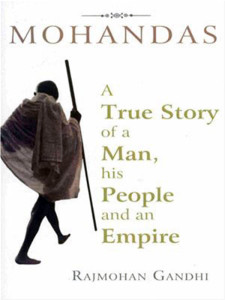
Mohandas: A True Story of a Man, His People and An Empire
Rajmohan Gandhi
Penguin India (2007)
Rs1,512
A candid recreation of one of the most influential lives of recent times, Mohandas finally answers questions long asked about the timid youth from India’s west coast who became a century’s conscience and led his nation to liberty: What was Gandhi like in his daily life and in his closest relationships? In his face-offs with an Empire, with his own bitterly divided people, with his adversaries, his family and his greatest confrontation with himself? Answering these and other questions, and releasing the true Gandhi from his shroud of fame and myth, Mohandas, authored by a practised biographer who is also Gandhi’s grandson, does more than tell a story.
Rajmohan Gandhi has written widely on the Indian independence movement and its leaders, Indo-Pakistan relations, human rights and conflict resolution. He is a biographer and grandson of Mahatma Gandhi and former President of Initiatives of Change.
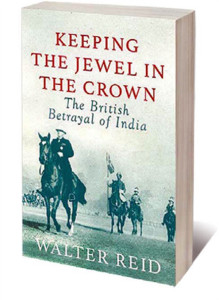
Keeping the Jewel in the Crown:
The British Betrayal of India
Walter Reid
Penguin Random House India (2016)
Rs1,132
When India became independent in 1947, the general view, which has prevailed until now, is that Britain had been steadily working for an amicable transfer of power for decades. In this book Walter Reid argues that nothing could be further from the truth. With reference to a vast amount of documentary material, from private letters to public records and state papers, he shows how Britain held back political progress in India for as long as possible - a policy which led to unimaginable chaos and suffering when independence was granted, and which created a legacy of hatred and distrust that continues to this day.
Walter Reid was educated at Oxford University, where he read history, and Edinburgh University. He has written a number of acclaimed books of military and political history, including Churchill: Under Friendly Fire and Empire of Sand: How Britain Made the Middle East.
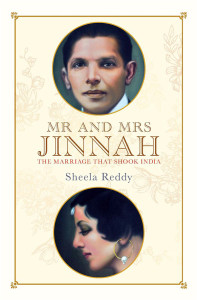
Mr. and Mrs. Jinnah: The Marriage that Shook India
Sheela Reddy
Penguin India (2017)
Rs1,321
Mohammad Ali Jinnah was forty years old, a successful barrister and a rising star in the nationalist movement when he fell in love with pretty, vivacious Ruttie Petit, the daughter of his good friend, the fabulously rich baronet, Sir Dinshaw Petit, a prominent Parsi mill owner. But Ruttie was just sixteen and her outraged father forbade the match. But when Ruttie turned eighteen, they married and Bombay society, its riches and sophistication notwithstanding, was scandalized. Everyone sided with the Petits and Ruttie and Jinnah were ostracized.
It was an unlikely union that few thought would last. But Jinnah, in his undemonstrative, reserved way was unmistakably devoted to his beautiful, wayward child-bride—as proud of her fashionable dressing as he was of her intelligence, her wide reading and her fierce commitment to the nationalist struggle. Ruttie, on her part, worshipped him and could tease and cajole the famously unbending Jinnah, whom so many people found intimidating and distant. But as the tumultuous political events increasingly absorbed him, Ruttie felt isolated and alone, cut off from her family, friends and community. The unremitting effort of submitting her personality to Jinnah’s, his frequent coldness, his preoccupation with politics and the law, took its toll. Ruttie died at twenty-nine, leaving her daughter, Dina and her inconsolable husband, who never married again.
Sheela Reddy, well-known journalist and former books editor of Outlook magazine, uses never-before-seen personal letters of Ruttie and her close friends as well as accounts left by contemporaries and friends to portray this marriage that convulsed Indian society, with a sympathetic, discerning eye. A product of intensive and meticulous research in Delhi, Bombay and Karachi and based on first-person accounts and sources, Reddy brings the solitary, misunderstood Jinnah and the lonely, wistful Ruttie to life. A must-read for all those interested in politics, history and the power of an unforgettable love story.

